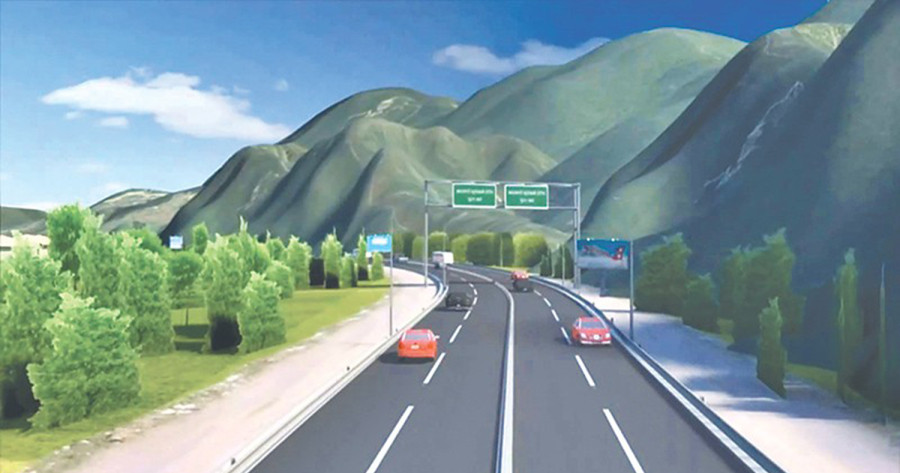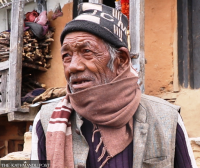National
Cabinet yet to approve Kathmandu-Tarai expressway detailed project report
The government is looking for justification for cost escalation while there are concerns about land acquisition in Khokana, say officials
Binod Ghimire
When a Korean company selected by the Nepal Army to prepare the detailed project report of the Kathmandu-Tarai expressway submitted the report in the third week of March, the cost for the national pride project had shot up—by almost Rs 80 billion.
Soosung Engineering and Consulting estimated a whopping Rs 213 billion for the construction of the road.
The Army submitted the detailed project report to the Cabinet through the Ministry of Defence in the first week of April.
But the Cabinet is yet to endorse it.
“The Cabinet is looking for justification for the increased cost,” said an official at the Ministry of Defence on condition of anonymity because he was not allowed to speak with the media.
But along with the cost justification, according to the official who is familiar with the matter, there are some concerns about land acquisition in Khokana, and this could be another reason for the delay in endorsing the detailed project report.
Despite reservations from a section of locals and conservationists, the project report has fixed Khokana as the entry point for the road which, once completed, will massively reduce the travel time from the Capital to the Tarai.
The Army has said the increase in the number—and length—of the tunnels and inflation are the reasons for the cost escalation.
Instead of an earlier plan to construct just one 1.35km-long tunnel, the new report proposes three tunnels which will have a total length of 6km.
Addition of two tunnels will shorten the distance of the expressway by around 4km to 72.5km from the earlier 76.2km, which has also resulted in the change of alignment.
First conceptualised in the mid-90s, the expressway project has had a bumpy ride.
For the next 15 years, there was hardly any development.
In 2013, the government revived the project, and two years later, Infrastructure Leasing & Financial Services, an Indian consortium, won the bid for the project in February 2015.
But in October of the same year, in response to a writ filed at the Supreme Court saying that the project was against national interests because it would burden the government financially in the long run, the court ordered a halt to the preparations to award the project to the Indian developer.
It then consequently came under the ambit of the government, which asked the Army to take charge of the project.
But the national defence force did not have the Detailed Project Report, as the Indian company refused to hand over its report, saying that the amount offered was too low.
The Army then decided to award the contract to prepare a new Detailed Project Report to the Korean company in September last year, which agreed for Rs 101.5 million, around five times less than what the Indian firm had demanded.
The project report by the Indian firm had estimated the construction cost at Rs 133.565 billion ($1.12 billion as per present exchange rate) if it were to be built with a soft loan.
Unlike the Korean firm’s estimate, it, however, didn’t include the cost for land acquisition, supervision and consulting charge. The cost would have gone up further if it were to be constructed on a commercial loan.
The present project report, however, includes all the necessary costs in addition to the construction expenses.
The Nepal Army, which has been tasked with building the road, had submitted the report to the Cabinet through the Defence Ministry in the first week of April.
The detailed project report is a must for the construction of any project.
Once endorsed by the Cabinet, there will be no scope for changing the alignment—and the entry point—and there are chances that Khokana locals might object to it.
Though around 50 percent of the people in Khokana have received compensation for their land, others are demanding that the entry point for the expressway be shifted to Farsidol.
Some of the residents of Khokana, a traditional Newar settlement in southern Lalitpur, have charged the government with assaulting their religious heritage, livelihood and indigenous identity by acquiring the land for a number of development projects including the expressway.
The other projects concerning their locality are the Outer Ring Road Development Project, the Bagmati Corridor, a satellite city, and a high-tension power line.
Army officials say they believe the government is carrying out a detailed study which might be the reason for the delay.
“I have no information about the Cabinet looking for justification for the revised cost,” Brigadier General Bigyan Dev Pandey, spokesperon for the Nepal Army, told the Post. “As it is a mega project, experts might be studying the DPR in detail.”
The Army’s plan to invite bids from national and international firms for the bridges and tunnels has been delayed as the Cabinet has not approved the DPR.
More than half of the Rs 15 billion released by the government for the mega project in the current fiscal year has returned to the state coffers as there is no scope for inviting bids by the end of the current fiscal year, according to Pandey.
Six international firms—three Chinese and one from Turkey—have been shortlisted by the Army for the construction of bridges, and one of them will be selected for the construction once the Cabinet endorses the DPR.
“Among the 87 bridges, 16 are complex in nature which need international construction companies,” said Pandey.
Baburam Gautam, the spokesperson for the Defence Ministry, said now it shouldn’t take long for the Cabinet to approve the detailed project report.




 15.12°C Kathmandu
15.12°C Kathmandu













